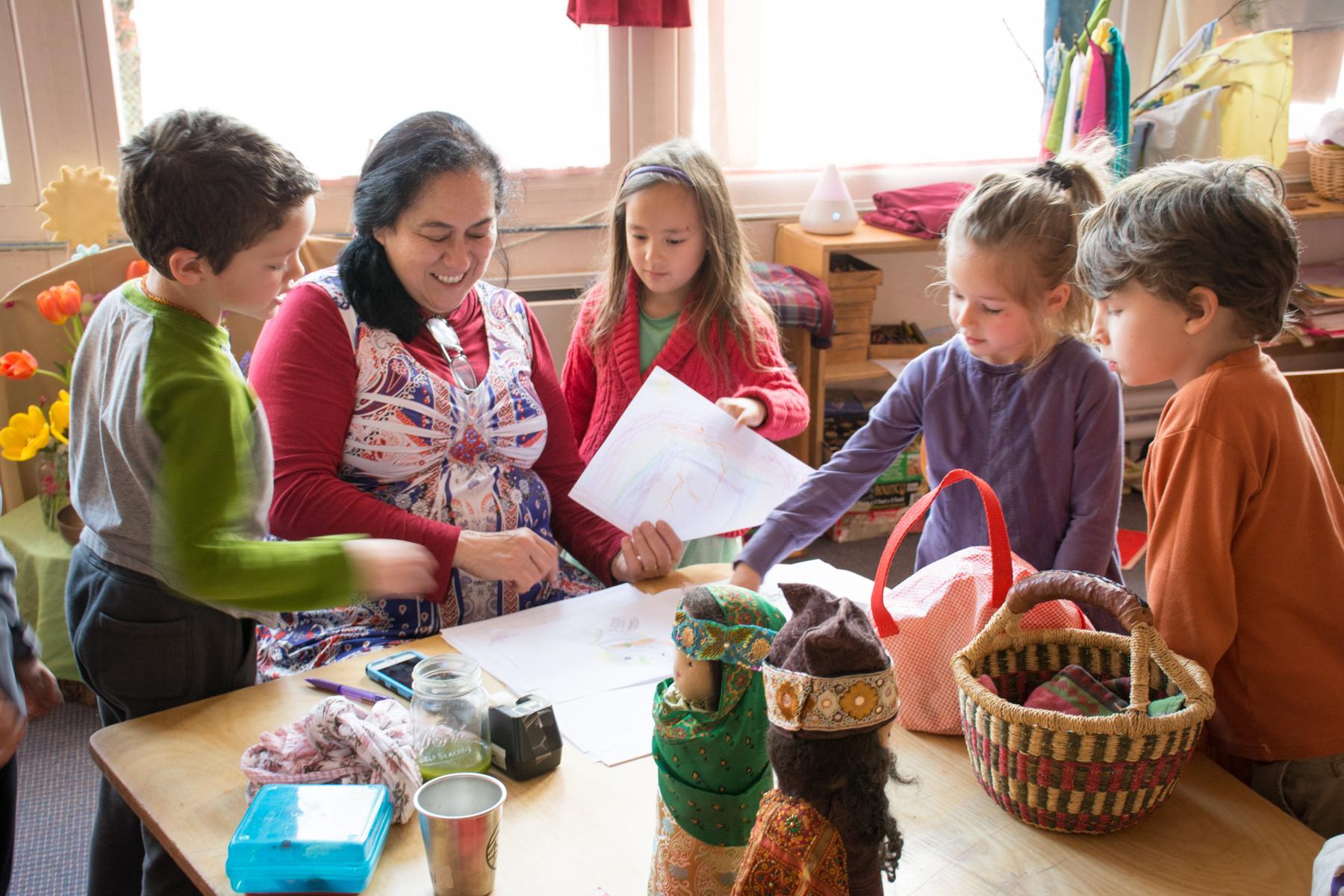Curriculum
PVS daily rhythms and community building activities are designed to strengthen social relationships and deepen restorative justice practice. Morning routines of poems, songs and cross body movement develop neural connections for students and set the instructional tone for the day. Main lesson block formats allow for integrated instruction in science, social studies, cultural studies, ELA, and math. All our students 1-8 also participate in weekly Spanish language classes, music, handwork arts, and physical education movement classes. Our students K-8 have two daily recess periods, allowing for proper physical expression opportunities for all, and once a week participate in park walk, for one hour of extended physical play opportunities in local community parks.
Waldorf schools guide students to become cultural creators and producers, and develop within them the capacities of clear perception, critical thinking, imagination, creativity, empathy, compassion, determination, and the confidence to take action.
PVS Specials
Spanish: All Waldorf students participate in language instruction; PVS students learn Spanish. Learning different languages encourages children to be aware that different languages express things in different ways than our native tongue. This starts a child’s heart from early imprinting to feel delight in discovering differences and promotes tolerance, respect and delight in the wondrous variety in humanity.
Movement: Waldorf educators know a childhood rich in varied play and movement strengthens the developmental foundations needed for success in school and beyond. Benefits of these activities include: foundations for literacy and numeracy, readiness for deskwork - enhancing attention, setting the stage for harmonious receptivity to new material, as well as bodily/kinesthetic and spatial integration.
Recess: Play is critical for children to develop capacities for creativity, problem solving, executive functioning, intellectual and socio-emotional development. Children at recess are not ‘just playing’ they are building, testing and maintaining the social fabric in which they will learn. All Portland Village School students are outdoors for recess twice a day, rain or shine, and participate in weekly park walks.
Handwork: Waldorf students learn to knit, crochet, sew (by hand and on a machine) dye, and spin yarn. They learn basic woodworking and carpentry skills. This handwork has the important function of establishing and activating pathways in the brain. Students learn to plan ahead, work step by step in sequence. They learn to envision a project- whole to parts, then parts to whole. All these skills are carried over into academic subjects. Students also learn to appreciate beauty and function of the projects they make, and develop growth mindset as they tackle projects over time.
Music: Music instruction is an integrated and daily part of Waldorf education; children sing in their classrooms and they participate in music specials. Through music students learn to listen to others, to wait their turn, and to carry others along. Music is related to math- being rhythmically based on the sub-division of time into fractions and uses highly developed symbols to express ideas. Music breathing, coordination, and crossing the midline. As an art form, music allows for individual expression that touches on human emotions.
